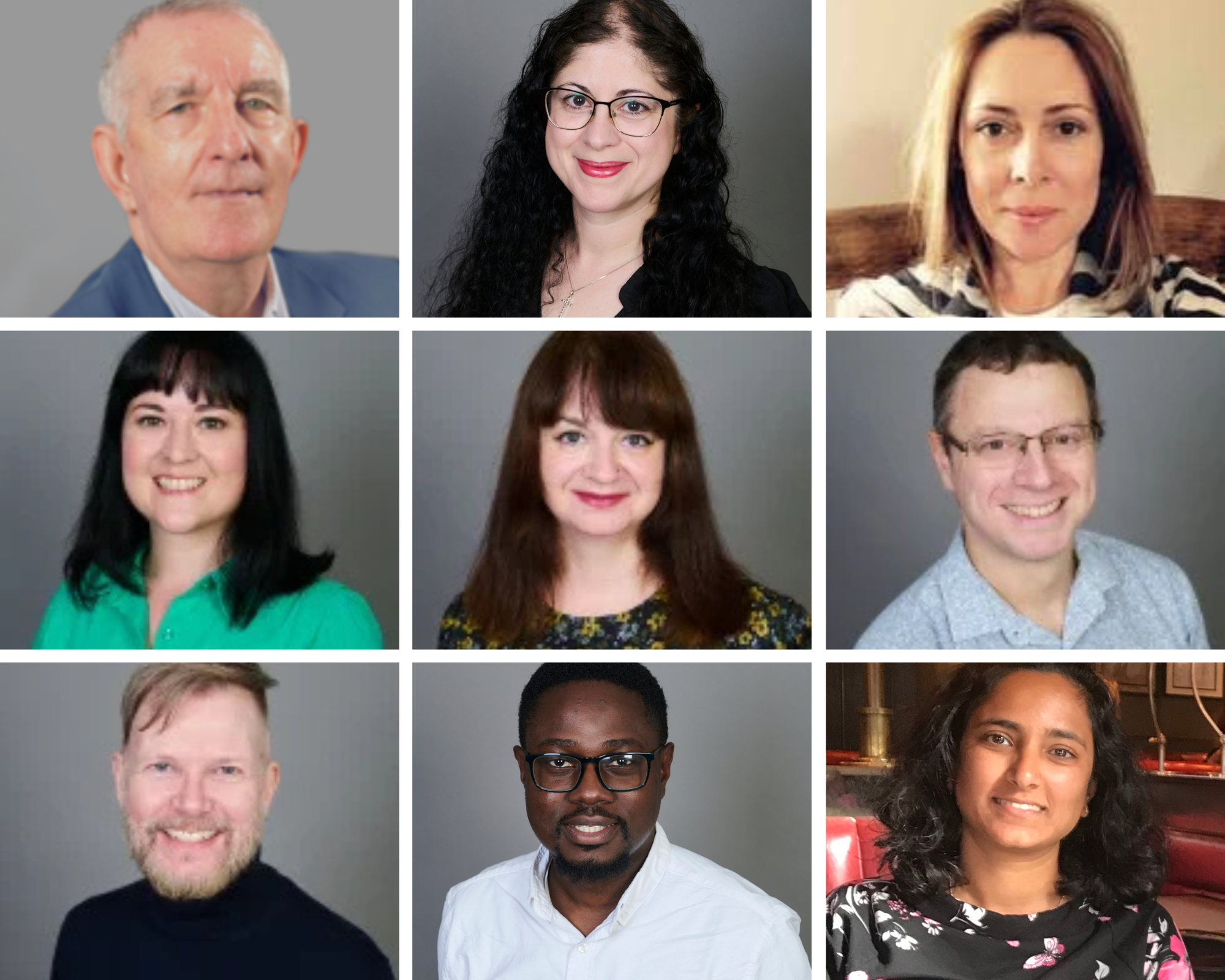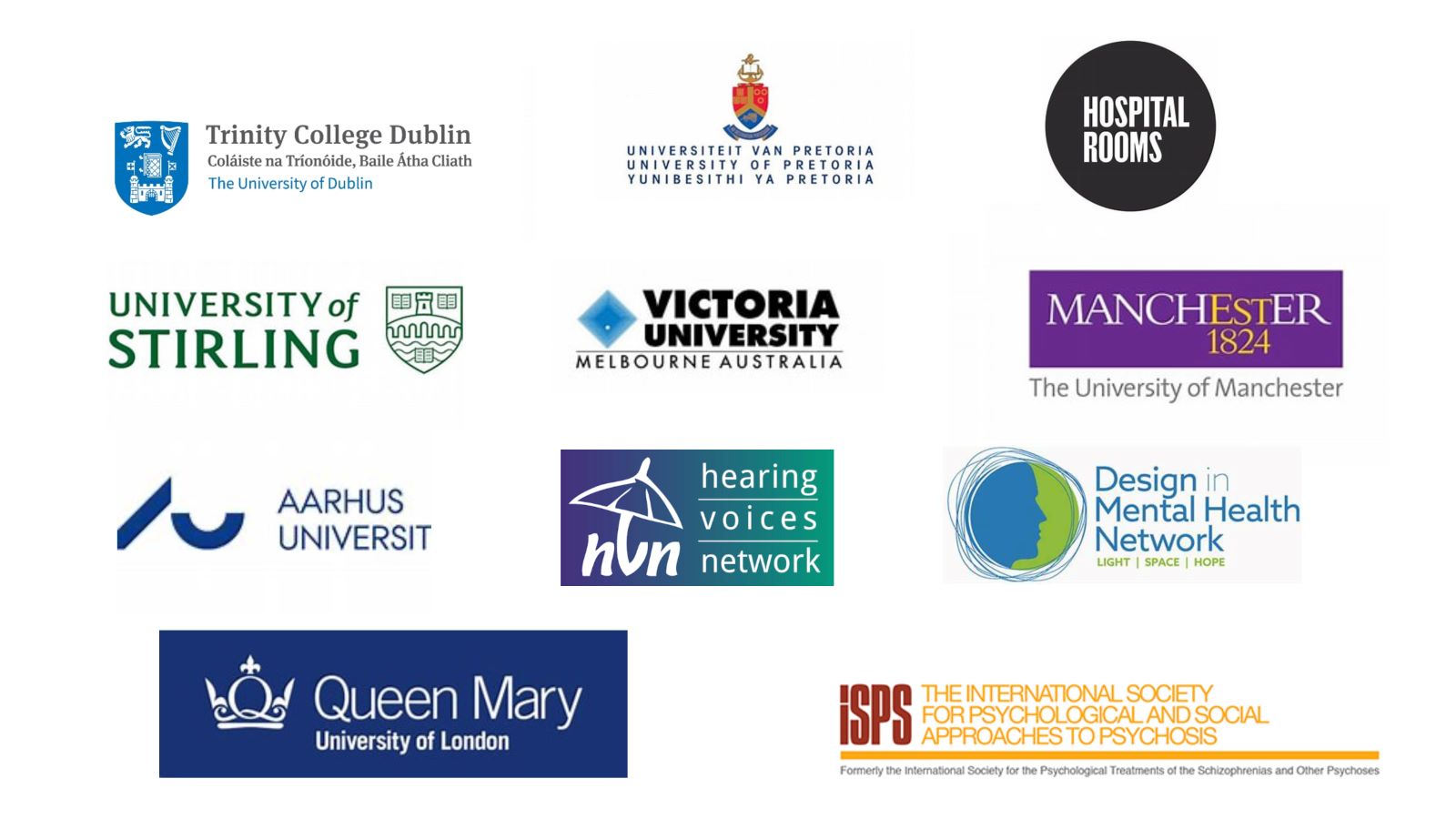
Lived Experiences of Distress Research Group (LEOD)
The LEOD group, led by Prof. Paula Reavey, focuses on building research and developing psychological/social theories of experiences relevant to mental health. The focus fits well with the proposed university Centre for Health and Wellbeing, as the LEOD remit includes theoretical and empirical works relating to experiences of distress, trauma, mental health service and community use. The objective is to develop a program that is largely non-diagnostic and psycho-social in orientation and is already recognised nationally and internationally.
The existing LEOD group has run for several years, gradually accumulating relevant members from permanent staff and visiting scholars. We host a combination of non-traditional members from the expert-by-experience community as well as academics and clinicians from outside the university. Among those communities, we have well-known proponents of a perspective on mental health and distress that positions life events and experiences, rather than diagnosis, at the forefront of psychological theorisation. We have two leading figures from the British Psychological Society sponsored ‘Power, Threat, Meaning Framework’ as visiting scholars who support our research aim. The vision is to promote this alternative perspective through published scholarly work and funded research. We now have members working towards this aim, with invitations to deliver events at a national and international level and a strong and growing body of funded projects. We have also accrued around £12million of funding on mental health and/or related research.
Supported by funding from the National Institute of Health Research (NIHR), Leverhulme, the Economic and Social Research Council and the Wellcome Trust, our research group advances psychological understandings of mental health challenges and service use across a diverse range of groups, including children and young people, general adult, Black and Minority ethnic groups, forensic services and LGBTQ+ groups.
We hold established and emerging links with researchers across the globe, including scholars in the Global South and North. As mental health challenges continue to rise, particularly among the most disadvantaged in society, our mission is to alleviate this burden of inequality.
Collaborating closely with individuals who experience distress, we leverage a broad range of traditional and innovative methodologies. These include Randomized Controlled Trials, qualitative and visual methods, memory work and mixed methods studies. Embracing a user-led ethos and democratization of knowledge production, we explore how service users, lived experience experts, and practitioners can collaborate effectively in improving research protocols and service provision more generally.
Our research on distress and mental health covers issues of memory, the environment and space, trauma, family dynamics, designs of cities and inpatient services, sexuality, help-seeking, inequalities, service use and discrimination. Our work on mental health has directly fed into local and national policy and service delivery improvements.
With a wealth of expertise, including trial design, experimentation, visual methods and, qualitative methodologies and Randomized Controlled Trials, we are at the forefront of innovative approaches to understand the conditions of living that lead to distress and how best to tackle these complex psychological and social issues.
Core Members

- Paula Reavey
- Daniel Frings
- Patrick Callaghan
- Ope Atanda
- Kerry Wood
- Eleni Vangeli
- Richard Batty
- Elisa Lewis
- Allan Tyler
- Preethi Premkumar
- Sarah Church
- Catherine Jenkins
- Nick McCubbin
- Maneet Saini
- Harriet Higgins
Visiting Professors
Visiting Fellows
PhD Students / Research Assistants
- Donna Ciarlo
- Charlotte Taylor-Page
- Errol Thomas
- Rai Waddingham
- Temi Onasanya
- Hayley Howard Hall
- Reilly Broomfield
- Lauren Murphy
- Ebony Baker
- Jessica Collier
National Institute for Health and Care Research – in collaboration with Embers the Dragon LTD i4i funding: £1, 868,700. Effectiveness of an online intervention for parents/guardians of children aged 4–7 years who are concerned about their child’s emotional and behavioural development. Protocol for an online randomised controlled trial (EMERGENT study) can be found below.
Link to study web page and protocol paper
National Institute for Health and Care Research – in collaboration with King’s college, London: Comparison of Effectiveness and Cost-Effectiveness of Intensive Community Care Services versus Usual Inpatient Care for Young People with Psychiatric Emergencies (IVY): An Internal Pilot followed by a Randomized Controlled Trial Comprising All Intensive Community Service Care Teams in Great Britain: £1,866,800.
Links to NIHR funder page with details and protocol
Mental Health First Aid England: Evaluation of Mental Health First Aid from the Perspective Of Workplace End UseRs – EMPOWER: Funded by Mental Health First Aid England.
Link to protocol paper
NIHR - EQUIP: Enhancing Service user and carer involvement in care planning, £1,800,000: NIHR abstract
National Institute for Health and Care Research (NIHR): in collaboration with Queen Mary, University of London, and Ukraine Institute of Health: NIHR Global Health Research Group on Developing And Integrating mobile community mental health Services In Ukraine (DAISI Ukraine): £3.1 million.
Economic and Social Research Council (ESRC): Schools as Enabling Spaces to Improve Learning and Health-Related Quality of Life for Primary School Children in Rural Communities in South Africa, £1,999,686.76.
The research group draws on additional expertise by engaging with academic partners from other universities in the UK and overseas as well as industry partners. Examples of our partnerships include:

- Professor Dennis Ougrin – Queen Mary, University of London
- Professor Morten Nissen; University of Aarhus
- Professor John Sutton: University of Macquarie and the University of Stirling
- Tim Shaw: CEO Hospital Rooms
- Hannah Chamberlain: Design in Mental Health Network, UK
- Peter Bullimore: National Paranoia Network, UK
- Jacqui Dillon: International Society for Psychological and Social Approaches to Psychosis
- Prof Karina Lovell, University of Manchester
- Dr Owen Price, University of Manchester
- Prof Liesel Ebersohn, University of Pretoria, South Africa
- Prof Alex Parker, Victoria University, Australia
- Prof Agnes Higgins, University of Dublin, Trinity College, Ireland
Welcome to our new Senior Research Fellow!
We are pleased to announce that Dr Kerry Wood will join the Lived Experiences of Distress research group in March 2025, as full-time senior fellow for 4.5 years. The post was created by the Leverhulme funding awarded to Professor Reavey at the University of Stirling, where she is now seconded part-time for five years. Dr Wood will contribute her ongoing lived experience and mental health research to this successful LSBU research group and assist in building funding capacity.

Kerry Wood is a Chartered Health Psychologist and Senior Research Fellow, bringing expertise in mixed methods research, study design, and evaluation of mental health interventions. She has a strong track record of securing and delivering both small and large-scale research projects in collaboration with both commercial and non-commercial organisations. Her work spans the NHS, mental health charities, and industry partners, with a focus on improving outcomes for individuals experiencing mental distress and chronic health conditions.
Throughout her career, Kerry has led and collaborated on multi-disciplinary, cross-sector research in areas such as eating disorders, trauma therapy, addiction, cognitive behavioural therapy, and mental health first aid. She has also evaluated the impact of AI-driven healthcare technologies within the NHS and explored continuous glucose monitoring systems in partnership with commercial organisations. Her ability to bridge academic research with real-world application ensures that findings lead to meaningful change in mental health services.
As SRF, Kerry will play a crucial role in developing research funding applications, supporting the LEOD group’s research agenda, and strengthening links with key stakeholders, including mental health groups, NHS partners, and service users. She is particularly excited to support colleagues in shaping their research ideas into fully funded projects, providing guidance at every stage, from concept development and grant applications to project delivery and impact evaluation. Additionally, she will contribute to mentoring postgraduate students and teaching within psychology programs, sharing her expertise in study design, data analysis, and research dissemination.
Dr Wood says:
"I am excited to join the LEOD group and contribute to research that is deeply rooted in the experiences of those who have lived with mental distress. A key part of my role will be supporting colleagues in developing their research ideas into successful, funded studies, ensuring they have the guidance and resources needed to bring their work to life. I look forward to collaborating across disciplines, fostering innovation, and driving meaningful improvements in mental health care."
As a research group, we look forward to working and collaborating with you too Dr Wood, as we build our research portfolio over the coming years.